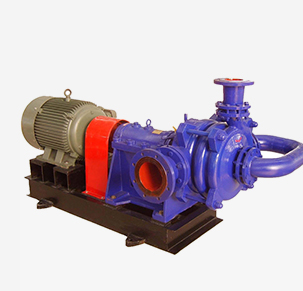Malay
- Afrikaans
- Albanian
- Amharic
- Arabic
- Armenian
- Azerbaijani
- Basque
- Belarusian
- Bengali
- Bosnian
- Bulgarian
- Catalan
- Cebuano
- Corsican
- Croatian
- Czech
- Danish
- Dutch
- English
- Esperanto
- Estonian
- Finnish
- French
- Frisian
- Galician
- Georgian
- German
- Greek
- Gujarati
- Haitian Creole
- hausa
- hawaiian
- Hebrew
- Hindi
- Miao
- Hungarian
- Icelandic
- igbo
- Indonesian
- irish
- Italian
- Japanese
- Javanese
- Kannada
- kazakh
- Khmer
- Rwandese
- Korean
- Kurdish
- Kyrgyz
- Lao
- Latin
- Latvian
- Lithuanian
- Luxembourgish
- Macedonian
- Malgashi
- Malay
- Malayalam
- Maltese
- Maori
- Marathi
- Mongolian
- Myanmar
- Nepali
- Norwegian
- Norwegian
- Occitan
- Pashto
- Persian
- Polish
- Portuguese
- Punjabi
- Romanian
- Russian
- Samoan
- Scottish Gaelic
- Serbian
- Sesotho
- Shona
- Sindhi
- Sinhala
- Slovak
- Slovenian
- Somali
- Spanish
- Sundanese
- Swahili
- Swedish
- Tagalog
- Tajik
- Tamil
- Tatar
- Telugu
- Thai
- Turkish
- Turkmen
- Ukrainian
- Urdu
- Uighur
- Uzbek
- Vietnamese
- Welsh
- Bantu
- Yiddish
- Yoruba
- Zulu
Telephone: +86 13120555503
Email: frank@cypump.com
Nov . 02, 2024 03:35 Back to list
sewage pump for septic tank
Understanding Sewage Pumps for Septic Tanks
A sewage pump plays a critical role in the functioning of a septic system. This essential device helps manage wastewater effectively, ensuring that it is properly treated and does not pose a risk to the environment or public health. Understanding the functions, types, and maintenance of sewage pumps can aid homeowners in making informed decisions about their septic systems.
Understanding Sewage Pumps for Septic Tanks
One of the primary functions of a sewage pump is to transport wastewater from the septic tank to the drain field or a municipal sewer system. In a traditional gravity-fed septic system, wastewater flows naturally into the drain field. However, if the tank is located below the level of the drain field, a sewage pump is essential for ensuring that waste can rise and flow correctly. This situation is common in homes built on sloped properties, where gravity alone isn’t sufficient to move waste.
sewage pump for septic tank

There are several types of sewage pumps available on the market. One popular option is the macerating pump, which not only pumps waste but also grinds solid waste into a slurry, making it easier to transport. This type of pump is beneficial for homes that do not have a traditional gravity system and are often used in combination with a holding tank to facilitate waste transfer. Another type is the effluent pump, which is designed to move less solid-heavy wastewater, typically used for pumping from a septic tank to a drain field.
Maintaining your sewage pump is crucial for ensuring its longevity and efficient operation. Regular inspections should include checking the power supply, inspecting for clogs, and ensuring the float switch operates properly. Homeowners should also familiarize themselves with the signs of a failing sewage pump, such as unusual noises, slow drainage, or backups in the plumbing system. Taking proactive measures can prevent costly repairs and maintain a sanitary environment.
Ultimately, understanding the significance of sewage pumps in septic systems can lead to better management of wastewater disposal. Homeowners should be mindful of the pump's capacity and operational requirements and ensure they select a model that fits their specific needs. Consultation with a septic system professional can provide additional guidance on the best practices for installation and maintenance.
In conclusion, sewage pumps are a vital component of septic systems, responsible for the safe and effective movement of wastewater. By choosing the right type of pump and adhering to regular maintenance schedules, homeowners can protect their investment and contribute to a clean and healthy environment. Whether it’s a new installation or an existing system, understanding sewage pumps will ensure that users can navigate the complexities of wastewater management with confidence.
-
Reliable Non-Clog Sewage Pumps with GPT-4-Turbo Tech
NewsAug.04,2025
-
High-Performance Air Pumps for Sand & Gravel | Efficient Transport
NewsAug.03,2025
-
ISG Series Vertical Pipeline Pump - Chi Yuan Pumps Co., LTD.|Energy Efficiency, Corrosion Resistance
NewsAug.03,2025
-
ISG Series Pipeline Pump - Chi Yuan Pumps | Energy Efficiency&Compact Design
NewsAug.03,2025
-
ISG Series Vertical Pipeline Pump - Chi Yuan Pumps Co., LTD.|High Efficiency, Low Noise, Durable
NewsAug.02,2025
-
ISG Series Vertical Pipeline Pump - Chi Yuan Pumps | High Efficiency, Low Noise
NewsAug.02,2025










